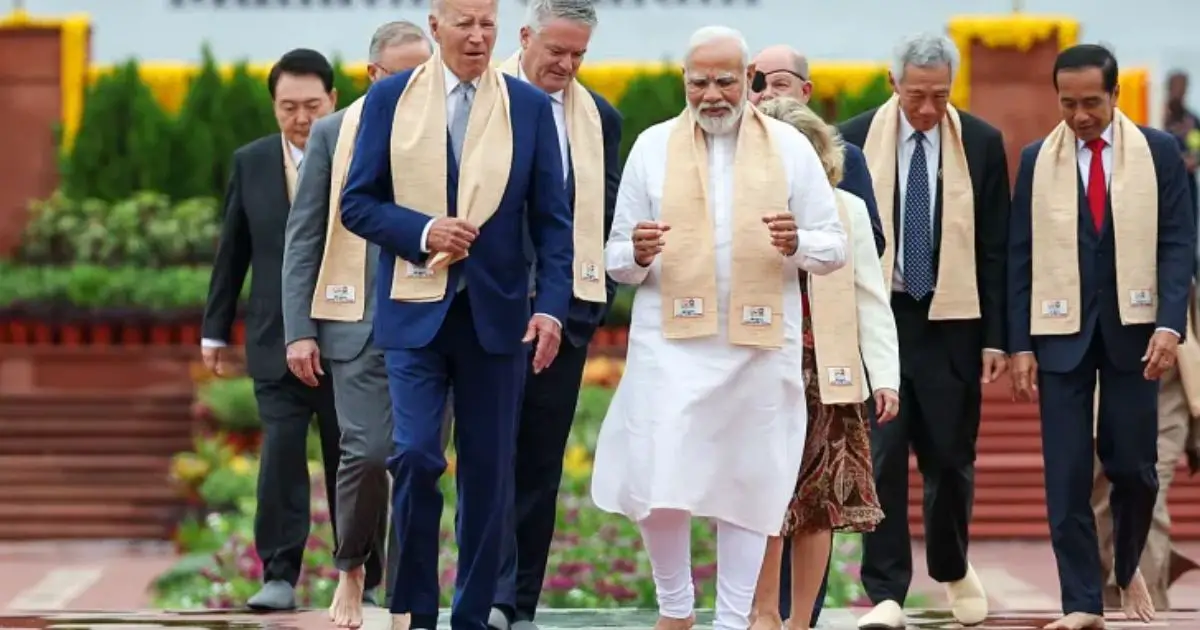As the leader of the world’s largest democracy, the Prime Minister wields significant power and responsibility, shaping not only the course of the nation but also influencing global affairs. In this comprehensive exploration, we delve into the intricacies of Indian politics, examining the role of the Prime Minister, the historical context of the position, and the current incumbent who leads this vibrant and diverse nation.
Understanding the Role of the Prime Minister
The Prime Minister of India occupies a central position in the country’s political landscape. Serving as the head of government, the Prime Minister is responsible for formulating policies, leading the executive branch, and representing the nation both domestically and internationally. This pivotal role requires strong leadership, strategic vision, and adept management skills to navigate the complexities of India’s diverse socio-political landscape.
Historical Context
To comprehend the significance of the Prime Minister’s role in India, it’s essential to delve into the historical context of the position. India gained independence from British colonial rule in 1947, ushering in a new era of nation-building and democratic governance. Jawaharlal Nehru, a prominent leader in the Indian independence movement, became the nation’s first Prime Minister. Nehru’s tenure laid the foundation for India’s democratic institutions, emphasizing secularism, socialism, and non-alignment on the global stage.
Subsequent Prime Ministers, including Indira Gandhi, Rajiv Gandhi, Atal Bihari Vajpayee, and Manmohan Singh, each left their mark on India’s political landscape, steering the nation through various economic, social, and geopolitical challenges. From economic liberalization to nuclear proliferation, each leader’s tenure reflected the evolving priorities and aspirations of India as a rising global power.
The Current Incumbent
As of the latest available information, the Prime Minister of India is Narendra Modi. Born on September 17, 1950, in Vadnagar, a small town in Gujarat, Modi rose through the ranks of the Rashtriya Swayamsevak Sangh (RSS), a Hindu nationalist organization, before joining the Bharatiya Janata Party (BJP). Known for his dynamic oratory skills and charismatic leadership style, Modi emerged as a prominent figure in Indian politics, serving as the Chief Minister of Gujarat from 2001 to 2014.
Modi’s tenure as Prime Minister, which began in May 2014 after the BJP secured a landslide victory in the general elections, has been marked by ambitious reforms, including the implementation of the Goods and Services Tax (GST) and the demonetization of high-denomination currency notes. His government has also focused on initiatives such as “Make in India,” “Digital India,” and “Swachh Bharat Abhiyan” (Clean India Mission), aimed at fostering economic growth, technological innovation, and social development.
Critics of Modi’s administration have raised concerns about issues such as religious intolerance, freedom of expression, and economic inequality. Controversial policies, such as the Citizenship Amendment Act (CAA) and the abrogation of Article 370 in Jammu and Kashmir, have sparked debates both within India and on the international stage.
Despite the controversies and challenges, Modi’s leadership style, often described as decisive and assertive, has resonated with a significant portion of the Indian electorate, securing the BJP’s electoral dominance in multiple state and national elections. His ability to connect with the masses through social media and public rallies has contributed to his image as a grassroots leader with a vision for a prosperous and powerful India.
Conclusion
In conclusion, the Prime Minister of India occupies a position of immense significance, shaping the nation’s trajectory and influencing global affairs. From Jawaharlal Nehru to Narendra Modi, each Prime Minister has left an indelible mark on India’s political, economic, and social landscape. As India continues its journey towards becoming a leading global power, the role of the Prime Minister remains pivotal in steering the nation through the complexities of the 21st century.
Through this exploration, we have gained insights into the historical context of the position, the evolving priorities of Indian leadership, and the current incumbent’s vision for the nation. As India grapples with a myriad of challenges and opportunities, the leadership of the Prime Minister will continue to shape the destiny of this vibrant and diverse democracy for years to come.

